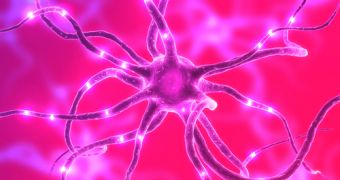Most of us have found ourselves in situations in which, when dealing with creativity issues, the solution failed to appear right there on the spot, but rather all of a sudden, after a while of not paying attention to them. This is how we instantly knew how to solve a certain math problem, continue the song we started and left off, or finish the painting we began. Scientists say this is a complex, two-part process.
The authors of the study, Professor Adam Galinsky from the Kellogg School of Management, Chen-Bo Zhong from the University of Toronto and Ap Dijkstererhuis from the Radboud University Nijmegen claim, based on their experiments, that a thorough comprehension process, as well as a distraction period are both equally important for solving a problem. The former is more efficient when dealing with complex, resource-requiring matters, while the latter proves more efficacious when confronting simple creativity tasks that “just won't come.”
The first experiment involved 94subjects, while the second one – only 36. They participated in a Remote-Association Test (RAT), which required them to provide a fourth word that would describe three previous ones – a triad (like “blue” is correct for “ocean, sky, blood”). The 9 triads of the first experiment were harder than the ones in the second. The subjects were divided in 2 groups, and asked not to solve the triads immediately upon receiving them.
One of the groups was asked to focus on solving them for 5 minutes prior to actually doing so, while the other group was tasked with other activities, non-related to the RAT. After the 5-minute pause, all participants were involved in a lexical decision test and only when this was over, they were eventually given the opportunity to write down the answers to the RAT. The second group performed far better in the lexical test, but just as well as the “conscious” group in the RAT test.
The researchers explain that, “Conscious thought is better at making linear, analytic decisions, but unconscious thought is especially effective at solving complex problems. Unconscious activation may provide inspirational sparks underlying the 'Aha!' moment that eventually leads to important discoveries.”

 14 DAY TRIAL //
14 DAY TRIAL //